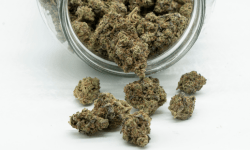In last month’s newsletter, we wrote about a proposal by the U.S. Department of Justice (DOJ) to transfer marijuana from Schedule I to Schedule III. Under the Controlled Substances Act (CSA), Schedule I substances are considered to have no currently accepted medical use and a high potential for abuse. Possession and sale of cannabis is illegal under U.S. federal law despite that 38 states have legalized medical cannabis. In contrast, Schedule III substances are defined as drugs with a moderate to low potential for physical and psychological dependence. This month, we will focus on the possible effect of the proposed rescheduling on the cannabis industry and cannabis patenting.
What is the likely impact of rescheduling on the cannabis industry? What the rescheduling will not do is legalize cannabis at the federal level. The manufacture and distribution of cannabis would still be subject to prohibitions of the CSA and drugs containing cannabis would still be subject to regulations under the Food, Drug and Cosmetics Act. But, there are two ways in which the rescheduling will benefit the cannabis industry:
- The most noted benefit is in the area of tax law. The Internal Revenue Service code section 280E prohibits business owners who deal in Schedule I and Schedule II controlled substances from deducting their ordinary business expenses, thereby resulting in a substantial tax burden. Rescheduling cannabis to Schedule III would permit cannabis companies to take the same kinds of business tax deductions as companies operating in other fields. This benefit alone may accelerate the growth of such businesses.
- The recognition that cannabis has a currently accepted medical use is also expected to promote further research into the development of new cannabis-based therapeutics. Companies that had been reluctant to engage in research in these areas may find an easier path to setting up research programs.
What are the implications of the proposed rescheduling for cannabis patenting? Trick question! The Schedule I status of cannabis is irrelevant to patentability. The United States Patent and Trademark Office (USPTO) examines patent applications for cannabis and cannabis-related inventions under the same standards it uses for any other application: the invention must be new, useful, and nonobvious, and the application must describe the invention and teach one of ordinary skill in the art how to make and use the invention –nothing more and nothing less.
However, rescheduling may have an indirect impact on cannabis patenting. As more cannabis companies seek to grow and more non-cannabis industry sectors venture into the field, we can expect an increase in patent application filings. As the field grows, it will be incumbent as never before on applicants to perform careful analysis of patent and non-patent literature before filing a patent application. Careful patent landscape searching will increase the likelihood of securing strong, commercially valuable patent claims. Particularly for early-stage companies, weak patent claims may raise concerns among potential investors who may not want to assume the risk of investing in companies whose patent claims may be vulnerable to challenge or may not mature into commercially valuable claims.
— G. Temeles, Esq.


